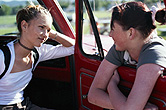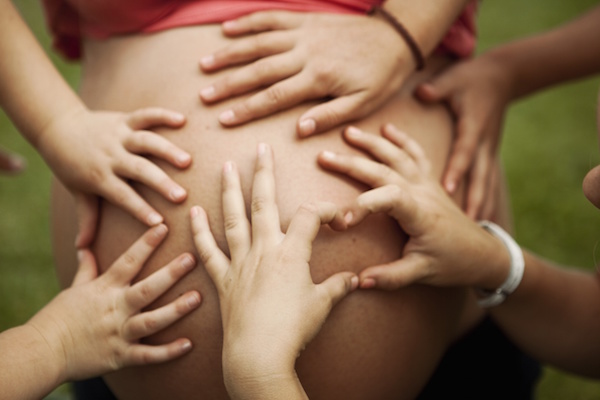
TUESDAY, April 23 (HealthDay News) — The United States appears to be in the throes of a prescription drug abuse crisis among teens, with a new survey showing that 24 percent of high school students — more than 5 million kids — have abused these medications.
That’s a 33 percent increase from 2008, the survey authors noted. They said that 13 percent of teens acknowledged having experimented at least once with either Ritalin or Adderall (normally prescribed for the treatment of attention-deficit/hyperactivity disorder, or ADHD) that was not prescribed for them.
What’s more, 20 percent of teens who admit they have abused prescription drugs said their first experience doing so was before the age of 14, with 27 percent mistakenly believing that prescription drug abuse is safer than “street drugs,” such as cocaine or ecstasy.
Compounding the problem: The parents surveyed seemed to share in this misperception, with almost one-third buying into the notion that Ritalin or Adderall can boost a child’s school performance even if the child is not diagnosed with ADHD.
The findings stem from a nationally representative poll launched in 2012 by The Partnership at Drugfree.org, in conjunction with the MetLife Foundation. The survey involved nearly 3,900 teens currently enrolled in grades 9 through 12 at public, private and parochial schools, along with more than 800 parents who participated in at-home interviews.
“From my perspective, one way to look at this is that we’ve got a real public health crisis,” said Steve Pasierb, president and CEO at the Partnership organization. “And it’s not getting better. In fact, it’s getting deeper and more complex,” he said.
“The key here is that kids and often their parents are buying into the myth and misunderstanding that prescription drug abuse is a safer way to get high, a safer alternative to street drugs, and that they can control it,” Pasierb continued. “And it’s very important to note that, on this, kids and parents are in the same place. Kids say that they don’t think that their parents are going to be upset if they know about this, and parents are essentially saying the same thing,” he pointed out.
“Now, if cocaine or heroin use was going up the way prescription drug use is parents would certainly be freaking out,” Pasierb added. “And they should be now, because prescription drug abuse is no better.”
Among the findings: one-third of teens think there’s nothing particularly wrong with the notion of using prescription medications that were never prescribed for them to tackle a specific injury or illness, with almost one-quarter believing that their parents are more concerned about street drug use than the misuse of prescription drugs.
Sixteen percent of parents also said they think prescription drugs are less dangerous than street drugs.
Perhaps this explains another survey finding: While about four in five teens said they had discussed both alcohol and marijuana use with their parents and almost one-third said they had talked with them about crack/cocaine, only between 14 percent and 16 percent said that the topic of painkiller/prescription drug abuse had ever come up.
This was true despite the fact that a parent’s medicine cabinet is the repository for 56 percent of the prescription meds teens say they are abusing, the poll found, with nearly half of parents acknowledging that there are no barriers to access at home.
Indeed, 20 percent of parents actually admitted to willfully giving their teen a prescription med that they had on hand, for which their child had no prescription.
That said, Pasierb stressed that the goal of the survey was to draw needed attention to the misconceptions that are at the heart of a rapidly growing problem.
“We know that kids who start abusing when they are very young are much more likely to have an addiction problem as adults,” he said. “So, parents need to intervene. They need to control supply and demand by locking up their medicine cabinets and throwing out old expired drugs. And they need to constantly weigh in, starting at very young age, even if they think they have the greatest kid in the world. They need to tell their child about the risks, and make clear how upset they will be if their child abuses these drugs.”
One parent speaks from experience.
“I had to learn to set real rules for our home,” acknowledged Kat Carnes, a single mom from Houston who has been helping her teenage daughter struggle with an addiction problem that involved a mix of alcohol, street drugs (such as ketamine, ecstasy and cocaine), and prescription meds (including antidepressants).
“She was in 8th grade when all this happened,” Carnes recalled. “[But] as I learned more, I discovered that she had been using for a couple of years already, especially during her 7th-grade year, when I was battling breast cancer and not able to focus as closely on her as I probably should have.”
Yet, Carnes said the mistakes she made as a parent who initially overlooked her child’s growing addiction problem were “pretty common,” despite the fact that she is well-versed in medicine and health issues, through her work as a scientific editor and a manager at a major local cancer center.
“I just sort of counted on her to do the right things,” Carnes added, “and when she didn’t I either tried to minimize it or just hid from it because I didn’t know what to do.”
Carnes explained that her daughter has now been sober for almost 22 months, with the assistance of a local drug abuse 12-step program and the camaraderie of other families struggling with teen drug abuse. Although careful to describe her daughter’s recovery as an ongoing “process,” she suggests that much of the progress has been rooted in open and honest communications.
“We hold each other accountable,” said Carnes, “for our words and actions.”
More information
The U.S. Drug Enforcement Administration will host National Prescription Drug Take-Back Day this Saturday, where residents can drop off unused or expired prescription drugs at collection sites around the country.

